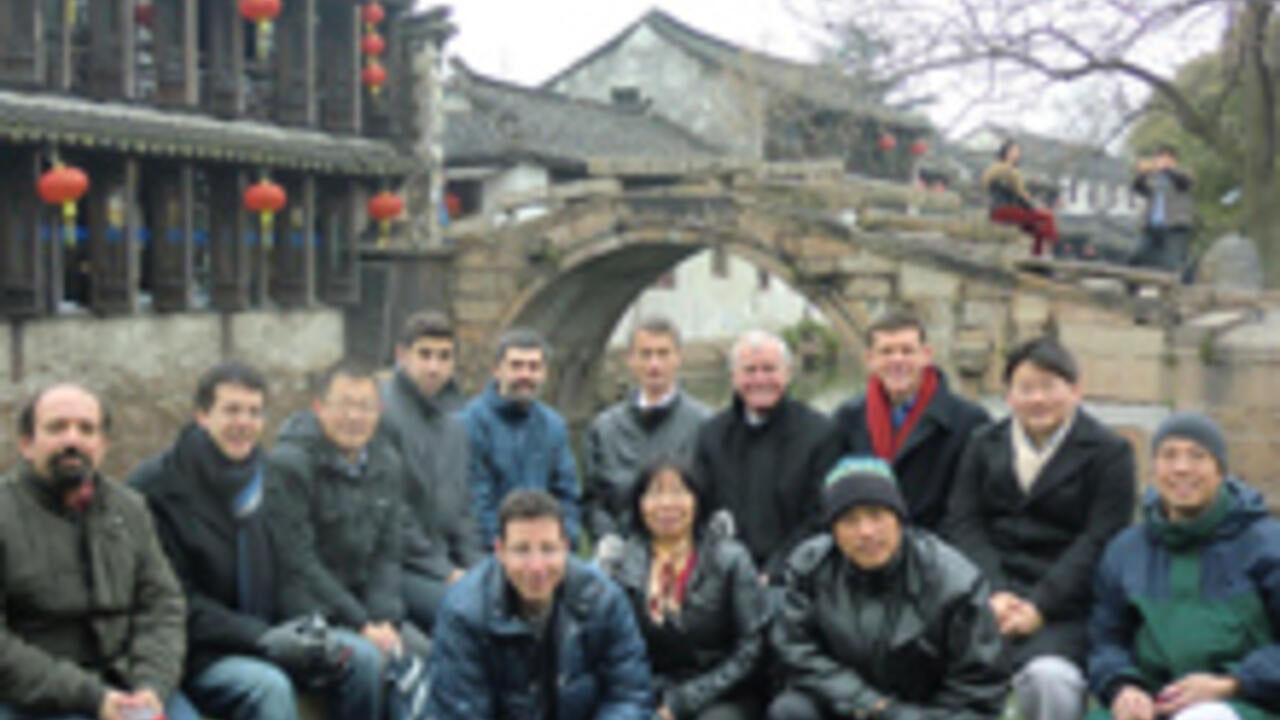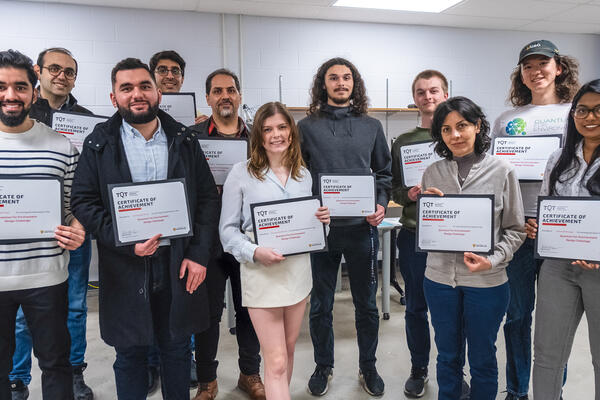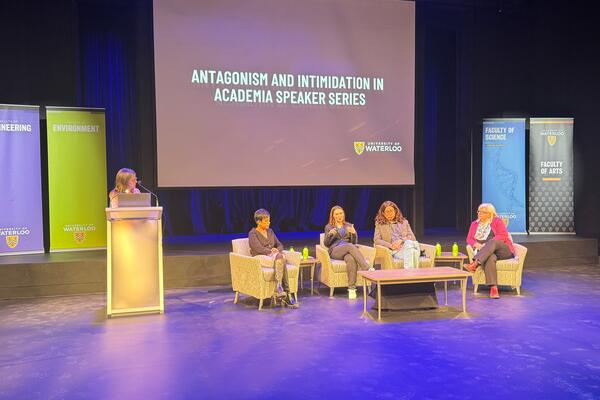
Nanotechnology institute views research as borderless pursuit
An international network linking researchers, students and institutions enhances Waterloo's global reputation as a nanotechnology leader.

An international network linking researchers, students and institutions enhances Waterloo's global reputation as a nanotechnology leader.
By Christian Aagaard Communications & Public Affairs University of Waterloo Nanotechnology faculty in Jiangsu, just outside of SooChow University where the WIN-SUN-SIP Joint Nanotechnology Centre was estiablished.
University of Waterloo Nanotechnology faculty in Jiangsu, just outside of SooChow University where the WIN-SUN-SIP Joint Nanotechnology Centre was estiablished.
Researchers at the Waterloo Institute for Nanotechnology work in a state-of-the-art building, but one reliable instrument they use is as old as cross-border travel.
Passports extend WIN’s each well beyond the walls of the Mike & Ophelia Lazaridis Quantum-Nano Centre on the main campus of the University of Waterloo.
“Internationalization is a big part of science,’’ says Dr. Arthur Carty, WIN’s executive director. “You have to be part of the scene if you want to be well-respected.’’
Nanotechnology explores the realm of the extraordinarily small, manipulating particles of atomic dimensions to design and engineer materials and devices with amazing properties. WIN’s relationships around the world include:
Besides the sponsoring institutions, agreements count on support from government and private-sector partners.
Exchanges expose collaborating researchers to new cultures and new ways of approaching challenges, Carty says.
“As part of (WIN’s) vision to be a global leader in nanotechnology and its applications, we have to establish our renown internationally,’’ Carty. “Part of that is by establishing collaborative relationships.’’

Read more
12 Waterloo students and postdoctoral fellows receive up to $10,000 in funding to develop their green-tech solutions

Read more
University of Waterloo researchers discuss the challenges faced by researchers amid rising antagonism in climate science discourse

Read more
Here are the people and events behind some of this year’s most compelling Waterloo stories
The University of Waterloo acknowledges that much of our work takes place on the traditional territory of the Neutral, Anishinaabeg and Haudenosaunee peoples. Our main campus is situated on the Haldimand Tract, the land granted to the Six Nations that includes six miles on each side of the Grand River. Our active work toward reconciliation takes place across our campuses through research, learning, teaching, and community building, and is co-ordinated within the Office of Indigenous Relations.